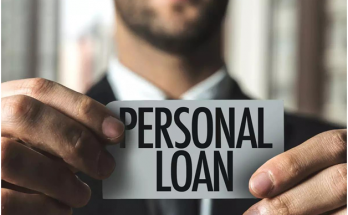Car accidents can have significant financial repercussions for all parties involved. Even if you are not at fault, you may incur considerable property damage and have to pay a deductible despite having insurance.

If you do not have insurance, a car accident can have a devastating impact on your personal finances. Drivers without insurance often have to pay all bills out of pocket and may even face charges for driving uninsured.
The NHTSA reports that motorists suffer a wide range of financial hardships when involved in an accident. For instance, insurance companies may not cover certain medical expenses forcing those affected to pay out of pocket, causing a significant financial strain.
The Economic Impact of a Car Accident
A car accident can impact your finances in various ways. Some long-lasting financial damages may include the following:
Medical Expenses
Routine medical care is expensive even without being involved in an accident. When you need emergency care, these expenses can be astronomical.
After a car accident, some motorists may also require future treatment due to severe injuries such as brain trauma.
Other medical expenses include follow-up treatment, surgery, ongoing care, and hospitalization.
Long-Term Rehabilitation Expenses
Depending on the type and severity of your injuries, you may need long-term rehabilitative care. Even a minor injury, such as whiplash, can result in several weeks of treatment with a physical therapist or chiropractor.
Severe injuries such as brain or spinal trauma may require months of sessions with a physical therapist. The government offers resources to pay for medical bills following serious injuries, however, rehabilitation programs are few.
When settling a claim, long-term rehabilitation expenses are often overlooked. However, these costs can be substantial and cause victims to suffer financially for years.
An experienced attorney can help you factor long-term rehabilitation costs into your claim and ensure you receive fair compensation.
Property Damage
Most insurance companies only pay for repairs if the cost of fixing the car is less than its actual value.
Furthermore, if your vehicle is totaled and needs replacement, the insurance company will only offer the car’s actual value at the time of the accident.
While a claim against the responsible party can help you recover your losses, you may still have to pay for the repairs out of pocket. You may also have to find alternative transport while your car gets repaired.
It is also important to remember that your car’s resale value will decrease significantly if an accident is listed in its history.
Loss of Income
After a car accident, a victim may suffer injuries that prevent them from working temporarily. Some may suffer disabilities that prevent them from returning to work permanently or lower their earning capacity.
Loss of income is also devastating to the victim and their family if the injured person is the primary breadwinner. You can file a claim against the negligent driver to recover past, current, and future lost income.
Renovation Costs
When victims suffer long-term injuries, their homes may need modification for better accessibility.
Some renovations include widening hallways and doors or installing ramps to accommodate a wheelchair.
Your lawyer can include these costs in your claim for compensation to lighten the financial burden.
Increased Car Insurance Premiums
Even if you are only partially liable, your insurance premiums may increase when you file a claim.
While a small monthly increment may not seem much, it can add to your costs significantly when you include other monthly expenses.
Insurance Deductible
When you are involved in an accident, even with insurance coverage, you still have to pay the deductible out of pocket.
For instance, if you carry a collision cover with a $400 deductible, you have to pay $400 towards your car repairs regardless of who is liable.
In some states, the deductible is a set amount, while in others, you may be allowed to choose.
Mediation or Arbitration Expenses
When the involved parties in an accident cannot agree, they may resort to arbitration. Mediation is outside help to determine how much each party owes. However, arbitration can be expensive, often running into thousands of dollars.
Legal Fees
Hiring a lawyer is the best way to ensure fair compensation. Even if an accident seems straightforward, insurance companies will take advantage of your lack of knowledge to give you a low settlement or deny your claim.
However, working with a lawyer in a car accident claim is a worthwhile investment. Even if you are at fault, hiring a lawyer protects your best interests and can help you get a favorable outcome.
Most car accident lawyers work on a contingency basis to ease your burden, meaning your fees come from your settlement.
If you win your claim against the negligent party, a percentage of your compensation covers the lawyer’s fees. However, if you do not win, you do not owe your attorney any fees.
Summary
It is essential to work with a lawyer to ensure all your financial losses are factored into your claim. For instance, future costs, such as long-term rehabilitation, can be difficult to quantify into a dollar figure.
However, with the help of an experienced attorney, you can consult medical professionals, financial planners, and vocational specialists who can identify the long-term effects of your injuries on your finances and help you determine a fair amount.
A lawyer can also help you understand how your age, overall health, and life expectancy impact your future ability to work and earn a living. In addition, you can recover compensation for non-economic damages such as pain and suffering, loss of service, and loss of companionship, among others.
If you have been involved in an accident, contact a personal injury lawyer to learn how much you can recover in compensation.



